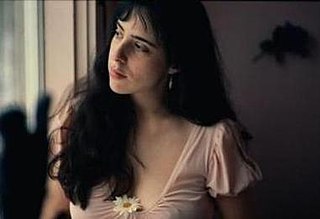A Quote by Tom Wolfe
I wrote 'The Painted Word,' about modern art, and was denounced as reactionary. In fact, it is just a history, although a rather loaded one.
Related Quotes
I want the pictures to be working in both directions. I accept that they speak about me, and yet at the same time, I want and expect them to function in terms of the viewer and their experience. With these abstract pictures, although the eye recognizes them as photographic rather than painted, the eye also tries to connect them to reality. There's always this association machine working in the brain, and that is why it is important to me that they are actually photographic and not painted.
There's a lot we should be able to learn from history. And yet history proves that we never do. In fact, the main lesson of history is that we never learn the lessons of history. This makes us look so stupid that few people care to read it. They'd rather not be reminded. Any good history book is mainly just a long list of mistakes, complete with names and dates. It's very embarrassing.
There are no limitations with a song. To me a song is a little piece of art. It can be whatever you like it to be. You can write the simplest song, and that's lovely, or you can just write a song that is abstract art. ... A lot of my songs are very serious, I'm like dead serious about certain things and I feel that I'm writing about the world, through my own eyes. ... I have a love for simple basic song structure, although sometimes you'd never know it. ... Most of the songs I wrote at night. I would just wake in the middle of the night. That's when I found the space to write.
. . . the example given by the Nazi regime as to the ability of a modern state to destroy human lives with the same techniques used by modern industry, employing the bureaucratic apparatus readily available to any modern state, is one that can hardly be ignored. Because although history may not repeat itself, it is rare that anything introduced to human history is not used again. Whether the Holocaust was unique or not in terms of its precedents is one question; whether it will remain so is quite another.

































